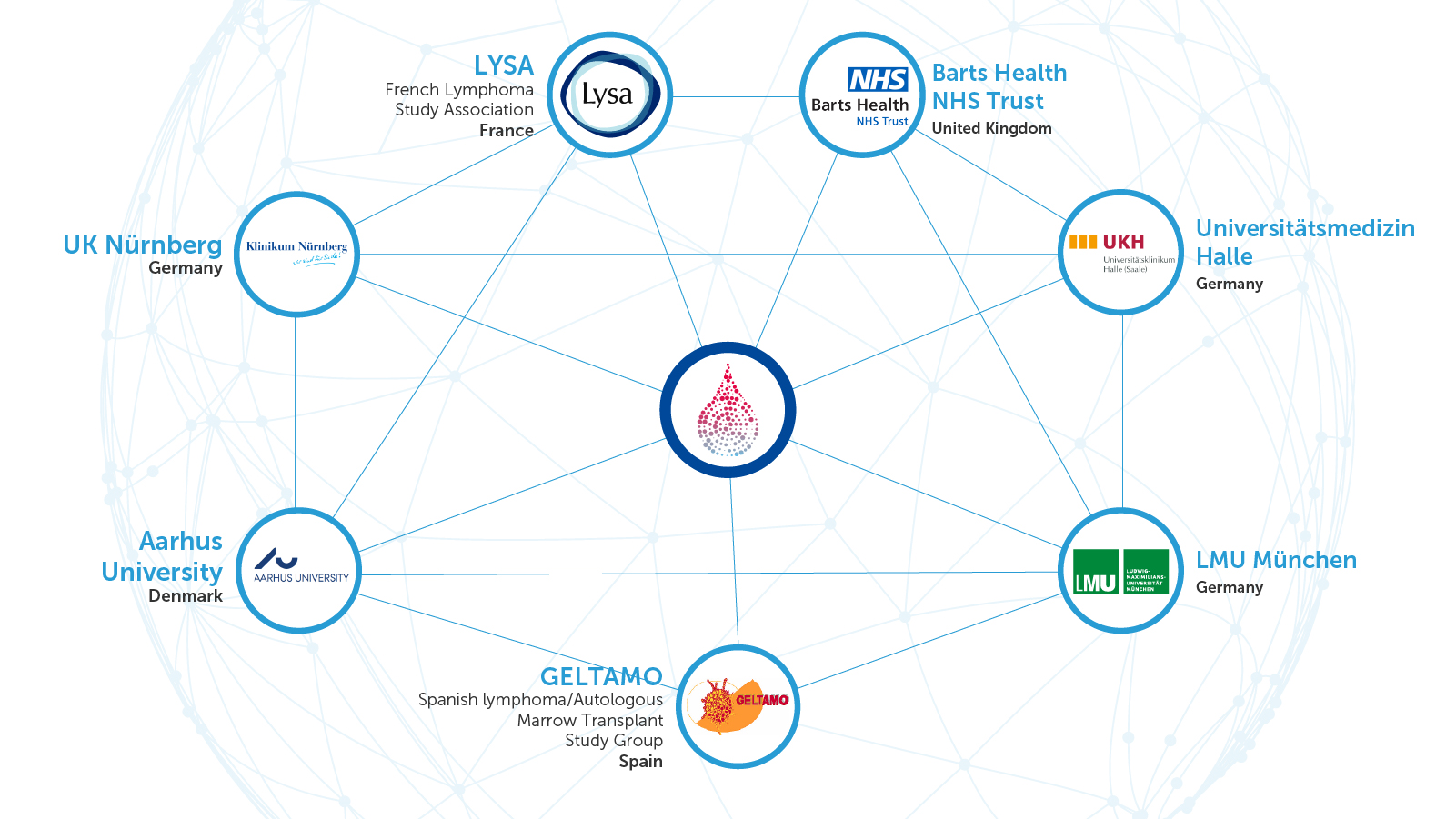Home> Research Projects> NHL: Using big data to optimize outcomes in T-cell Non-Hodgkin Lymphomas
The molecular pathogenesis of T-cell non-Hodgkin lymphomas (NHLs) is complex and only partially understood. Due to the rarity of these diseases, attempts to better elucidate the impact of genomics on prognostication and treatment have been hampered by a paucity of data. Large patient cohorts - accessed via the HARMONY Data Platform - are therefore needed to bridge this gap and improve molecular understanding and, in turn, treatment outcomes in T-cell lymphomas.

Clinicians: Martin Dreyling, Ludwg Maximilians University, Munich, Germany; Thomas Weber, Universitätsklinikum Halle (Saale), Halle, Germany; Emmanuel Bachy, Hospices Civils de Lyon, France; Francois Lemmonnier, APHP Hôpitaux Universitaires Henri-Mondor, France
Statistical support: Gian Maria Zaccaria, University of Turin, Italy
Coordinator: Natacha Bolanos, Lymphoma Coalition
T-cell lymphomas are rare, clinically heterogenous cancers which are challenging both to accurately diagnose and effectively treat. Treatment outcomes remain poor, with many patients proving refractory to therapy or relapsing rapidly. Current treatment approaches are burdened by high toxicity and typically fail to achieve enduring remissions. Yet new drug development for T-cell lymphoma has thus far proved slow, inefficient and frequently unfocused.
Currently, the molecular mechanisms that underpin the clinical heterogeneity of T-cell lymphomas are not fully understood. The HARMONY Big Data Platform aims to collect and analyze high quality, robust data and exploit new molecular gene profiling techniques in order to better understand the molecular pathogenesis of T-cell lymphomas. The study will carry out integrated molecular data analyses to identify the molecular abnormalities and frequent genomic aberrations that characterize the most common molecular subtypes of T-cell lymphomas. As well as refining the definitions of existing histopathological subtypes, it may also be possible to identify new T-cell lymphoma sub-entities. A further aim of the project is to establish and validate precision diagnostic and prognostic markers for T-cell lymphomas. This will allow patients to be grouped into low-, intermediate- and high-risk prognostic categories for relapse and help clinicians to better predict treatment response.
Long-term, it is hoped that the evolved understanding of molecular pathogenesis gained from the HARMONY Big Data Platform will lead to development of novel therapies for these difficult-to-treat diseases and/or the repurposing of existing treatment options. Advances in our understanding of the molecular and genetic basis of T-cell lymphomas could speed up the identification of potential therapeutic targets for drug development. Better characterization of the most common molecular subtypes will also allow clinicians to take personally tailored management decisions, helping to reduce toxicity and optimize treatment outcomes.
The ultimate aim of the project is to build a EU registry holding data on all T-cell lymphomas in order to advance and accelerate understanding and disease management moving forward. The study aims to collect data on over 1,000 T-cell lymphoma patients entered into international, national or institutional registries. These data will contribute real-world information on the immunophenotype of patients with T-cell lymphomas. Data will also be compiled, where possible, on patients enrolled in industry-sponsored clinical trials. This size of data set is needed in order to fully depict clinically meaningful molecular subtypes with prognostic or predictive power, and to identify targets for new therapies. The project will be divided into two key phases: the first will involve collection of retrospective data, while the second phase will establish procedures to collect data prospectively. The focus will be on collecting data that contains the required patient-related information, as well as the extensive molecular characterization needed to answer the key questions posed by this project.